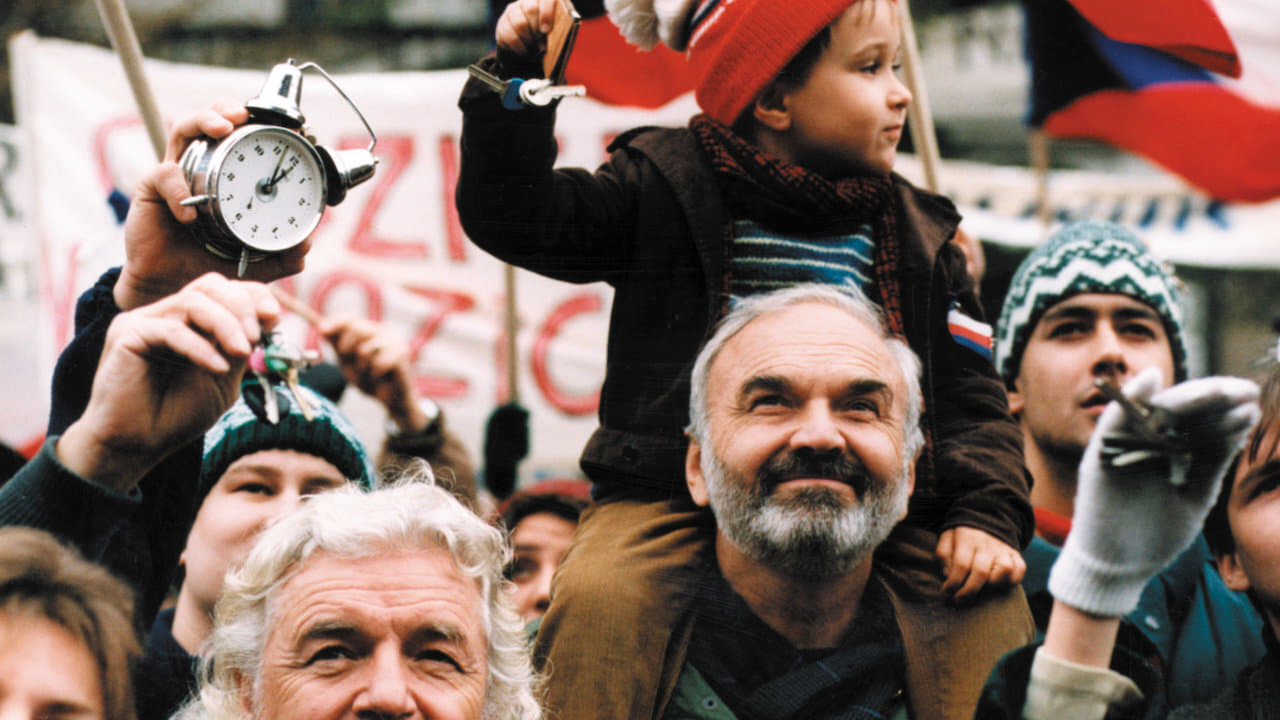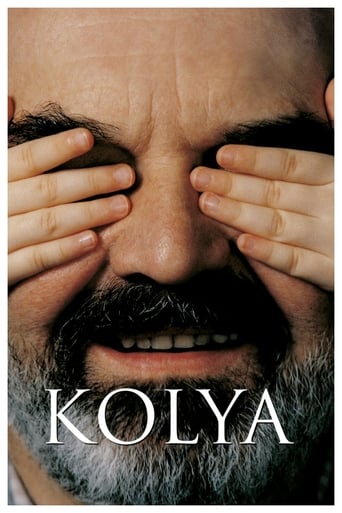

I haven't seen as many Czech movies as I would like to, but I've liked all the ones that I've seen. Among those is Jan Svěrák's Oscar-winning "Kolja" (rendered "Kolya" in English). The director's father Zdeněk plays a concert cellist making a living by playing at funerals as the Soviet Union's grip on Czechoslovakia is weakening. But then his life changes after he has to take a five-year-old boy under his wing.The cinematography, character development, and historical context all combine to make this one fine movie. I don't know that I would go so far as to call it a masterpiece, but it's a fine piece of work, both for the plot and the acting. I recommend it, and I hope to see more movies by Jan Svěrák.
... View MoreKoyla started out full of promise and had my full attention in the beginning. There's a fair bit of suspense and fun as we try to work out who our man is and how his womanising is going to turn out. There's a fair bit of humour and nice cinematography and you get a nice feel for the country. But then after Kolya the boy turns up it starts to get a bit slushy. There are some nice tender moments but for me it all got too much and you need some drama to balance that out. Only when our man is being interrogated do we get any further suspense. But from then on it's just more of the same, nice filming, child caring and 'sweet' moments but it all got too much for me after a while and I began tuning out. The main actor didn't really express much range of emotion either and he and the film just began to come off as a bit one dimensional as the film dragged to its predictable conclusion.
... View MoreFor a lecherous old man who fairly wallows in his own lechery, who "fiddles at funerals" and touches up tombstones, the introduction of a wife (however temporary) and a step-son who doesn't even speak the same language proves most inconvenient. As it no doubt would for most of us. The political schism only makes things worse. "Where you Russians march," he tells his young charge, "you stay." It's a statement (especially when made to so young a child) that's as harsh as it is funny. It's learning to communicate (and to love) that ultimately matters. Differences (especially in ideologies) are, in the final analysis, insignificant. Early on in the film, driving past a trio of young women he is ogling, the boy's unsuspecting, yet-to-be step-father doesn't bother to turn to look at their faces as he passes. His companion does, and remarks that their fronts don't hold up to their backs. "I didn't look back," the old man says: "So, for me, they'll be beautiful forever." In his dealings with the boy, KOLYA, he learns to look beyond the superficial- and, in the end, can't help but look back.
... View MoreThe general plot of this movie is certainly not new--a confirmed bachelor having a small child dumped into his lap and the subsequent growth of this individual as a result of raising a kid. However, unlike some other similar movies, this movie never became cloying or overly sentimental (the biggest problem with similar movies). Plus, although this COULD have been a "do it by the numbers film", it diverged into unusual directions (particularly setting the movie in the waning days of communist Czechoslovakia) and the ending was NOT so predictable as well.The acting, pacing and direction were excellent and I had no complaints about this. The only real complaint I have is that although this type of film is usually intended as family fare, KOLYA is DEFINITELY not--as it has a very brief nude scene. It's a real shame because many who would enjoy this most might not get to see it due to this one extremely brief scene. It DID help the plot along, but was certainly NOT necessary.
... View More